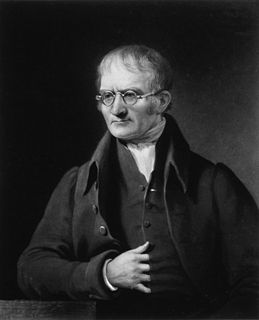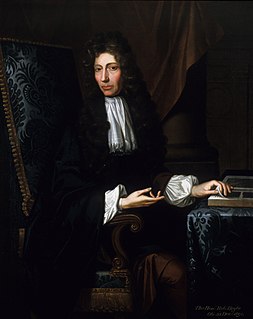A Quote by Joseph Butler
Men are impatient, and for precipitating things; but the Author of Nature appears deliberate throughout His operations, accomplishing His natural ends by slow, successive steps. And there is a plan of things beforehand laid out, which, from the nature of it, requires various systems of means, as well as length of time, in order to the carrying on its several parts into execution.
Related Quotes
Nature has but one plan of operation, invariably the same in the smallest things as well as in the largest, and so often do we see the smallest masses selected for use in Nature, that even enormous ones are built up solely by fitting these together. Indeed, all Nature's efforts are devoted to uniting the smallest parts of our bodies in such a way that all things whatsoever, however diverse they may be, which coalesce in the structure of living things construct the parts by means of a sort of compendium.
Nature is the system of laws established by the Creator for the existence of things and for the succession of creatures. Nature is not a thing, because this thing would be everything. Nature is not a creature, because this creature would be God. But one can consider it as an immense vital power, which encompasses all, which animates all, and which, subordinated to the power of the first Being, has begun to act only by his order, and still acts only by his concourse or consent ... Time, space and matter are its means, the universe its object, motion and life its goal.
In order to live, man must act; in order to act, he must make choices; in order to make choices, he must define a code of values; in order to define a code of values, he must know what he is and where he is – i.e. he must know his own nature (including his means of knowledge) and the nature of the universe in which he acts – i.e. he needs metaphysics, epistemology, ethics, which means: philosophy. He cannot escape from this need; his only alternative is whether the philosophy guiding him is to be chosen by his mind or by chance.
A commander-in-chief cannot take as an excuse for his mistakes in warfare an order given by his sovereign or his minister when the person giving the order is absent from the field of operations and is imperfectly aware or wholly unaware of the latest state of affairs. It follows that any commander-in-chief who undertakes to carry out a plan which he considers defective is at fault; he must put forward his reasons, insist on the plan being changed, and finally tender his resignation rather than be the instrument of his army's downfall.
We should scarcely be excused in concluding this essay without calling the reader's attention to the beneficent and wise laws established by the author of nature to provide for the various exigencies of the sublunary creation, and to make the several parts dependent upon each other, so as to form one well-regulated system or whole.
What, indeed, is an atheist? He is one who destroys delusions which are harmful to humanity in order to lead men back to nature, to reality, to reason. He is a thinker who, having reflected on the nature of matter, its energy, properties and ways of acting, has no need of idealized powers or imaginary intelligences to explain the phenomena of the universe and the operations of nature.
Nothing is more human than for man to desire naturally things impossible to his nature. It is, indeed, the property of a nature which is not closed up in matter like the nature of physical things, but which is intellectual or infinitized by the spirit. It is the property of a metaphysical nature. Such desires reach for the infinite, because the intellect thirsts for being and being is infinite.
Many of the things that have happened in the laboratory have happened in ways it would have been impossible to foresee, but not impossible to plan for in a sense. I do not think Dr. Whitney deliberately plans his serendipity but he is built that way; he has the art-an instinctive way of preparing himself by his curiosity and by his interest in people and in all kinds of things and in nature, so that the things he learns react on one another and thereby accomplish things that would be impossible to foresee and plan.
Secondly, man sins against nature when he goes against his generic nature, that is to say, his animal nature. Now, it is evident that, in accord with natural order, the union of the sexes among animals is ordered towards conception. From this it follows that every sexual intercourse that cannot lead to conception is opposed to man's animal nature.
All death in nature is birth, and at the moment of death appears visibly the rising of life. There is no dying principle in nature, for nature throughout is unmixed life, which, concealed behind the old, begins again and develops itself. Death as well as birth is simply in itself, in order to present itself ever more brightly and more like to itself.
And first, it seems not at all probable, That if the Omniscient Author of Nature knew that the study of his Works did really tend to make Men disbelieve his Being or Attributes, he would have given Men so many Invitations, and almost Necessities, to study and contemplate the Nature of his Creatures: Of these Invitations divers have been mention'd already, and more might be added to them, if we thought it requisite.
We see that God has implanted in all things a natural desire to exist with the fullest measure of existence that is compatible with their particular nature. To this end they are endowed with suitable faculties and activities; and by means of these there is in them a discernment that is natural and in keeping with the purpose of their knowledge, which ensures their natural inclination serving its purpose and being able to reach its fulfilment in that object towards which it is attracted by the weight of its own nature.
To find the length of an object, we have to perform certain physical operations. The concept of length is therefore fixed when the operations by which length is measured are fixed that is, the concept of length involves as much as and nothing more than the set of operations by which length is determined.
Branches or types are characterized by the plan of their structure,
Classes, by the manner in which that plan is executed, as far as ways and means are concerned,
Orders, by the degrees of complication of that structure,
Families, by their form, as far as determined by structure,
Genera, by the details of the execution in special parts, and
Species, by the relations of individuals to one another and to the world in which they live, as well as by the proportions of their parts, their ornamentation, etc.






































